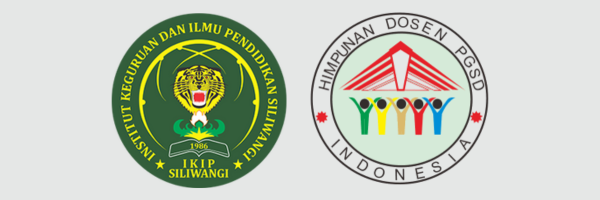THE USE OF SCHOOLOGY AS AN ALTERNATIVE OF LEARNING APPLICATIONS IN THE COVID-19 PANDEMIC PERIOD TO IMPROVE STUDENTS 'WRITING ABILITY
DOI:
https://doi.org/10.22460/pej.v5i1.2138Abstract
The research objective entitled "Schoology : an alternative of learning applications to improve students’ writing skills in the Covid 19†to is to determine the effect of Schoology online learning media on students' writing skills and to identify students' perceptions about the use of Schoology. The research method used a descriptive qualitative research. Technique in collecting the data were test, interview,questionnaire with research subject is 44 PGSD Students from Class of 2019. The content analysis method was used to analyze the data that was started from 1)data reduction, 2)data presentation, 3)drawing conclusion and verification. The results showed that 85.59% of students agreed that the use of Schoology improved their English language skills in general and 85.90% of students agreed it improved their writing skills. Perceptions of students using Schoology : 13.42% that Schoology is easy to use, 20.13% of students have an ordinary impression, 65.77% of students have the impression that is difficult to use. From their submitted task, there was improving of 40% of score and lessen writing error found.It is to be concluded that Schoology did improve writing skill because the language of instruction in Schoology was English with user friendly outlook hence force the students to study harder using and writing in English.
References
Abbas, A. H. (2020). Reasons why we should use Schoology in e-learning. Retrieved from https://jilrc.com/reasons-why-we-should-use-schoology-in-e-learning-a-review-paper/
Amalia, R. (2018). Students' perception on online assesment use in schoology in EFL classrooms. Surabaya: Universitas Islam Negeri Sunan Ampel Surabaya.
Aminoto, T., & Pathoni, H. (2014). Penerapan media e-learning berbasis schoology untuk meningkatkan aktivitas dan hasil belajar materi usaha dan energi di kelas XI SMAN 10 kota Jambi . Jurnal Sainmatika Vol 8 No 1, 13-29.
Apriliani, A., Asib, A., & Ngadiso. (2019). Schoology as learning media platform for writing skill : implication to teachers and students. English language and literature international conference (ELLiC) (pp. 89-94). Semarang: Universitas Muhamadiyah Semarang.
Arikunto, S. (2006). Metode penelitian kualitatif. Jakarta: Bumi Aksara.
Arini, L. P. (2013). Penggunaan english as medium of instructions dan konsekuensinya terhadap proses pembelajaran ditinjau dari persepsi siswa. Jurnal ilmu sosial dan humaniora Vol 2 No 1, 166-176.
Aryanika, S. (2016). The correlation between the students' writing motivation and the writing ability . Jurnal Tadris Bahasa Inggris Vol 9 No 1 .
Astuti, E. P. (2019). Schoology and its contribution in English learning. ELLiC Proceedings (pp. 64-70). Semarang: Universitas Muhamaddiyah Semarang.
Biswas, S. (2013). Schoology supported classroom management : a curriculum review . Northwest journal of teacher education.
Cheng, H.-F., & Dornyei, Z. (2007). The use of motivational strategies in language instruction : the case of ELF teaching in Taiwan. Innovation in language learning and teaching Vol 1 No 1 .
Farida, R. (2006). Pengajaran membaca di sekolah dasar. Jakarta: Bumi Aksara.
Harmer, J. (1988). How to teach writing. England: Longman.
Hastomo, T. (2019). Schoology effects on students' writing ability. Lentera : Jurnal ilmiah kependidikan Vol 12 No 1, 149-154.
Hossain , M. I. (2015). Teaching productive skills to the students : a secondary level scenario. Dhaka : Brac University.
Huda, M. (2018). Blended learning: Improvisasi dalam pembelajaran menulis pengalaman. Lensa : Kajian kebahasaan, kesustraan dan budaya Vol 8 No 2 , 117-130.
Hyland, K. (2009). Teaching and researching writing . Britain: Longman.
Ilmi, A., Indrowati, M., & Probosari, R. (2012). Pengaruh penerapan metode pembelajaran guided discovery terhadap ketrampilan proses sains siswa kelas X SMAN 1 Teras Boyolali Tahun Ajaran 2011/2012. Jurnal Pendidikan Biologi, 44-52.
Kane, T. (2000). The oxford essential guide to writing . New York: Berkley Books.
Karyawati, A., & Ndadari, K. L. (2017). Learning, beliefs and challenges : students' perspectives on schoology in english learning . Retrieved from https://ieltcon.weebly.com/uploads/4/2/3/4/42343687/1_alif_karyawati___kandi_lintang_schoology.pdf
Kasiyan. (2015). Kesalahan implementasi teknik triangulasi pada uji validitas data skripsi mahasiswa seni rupa FBS UNY. Jurnal Imaji, 1-13.
Moleong, L. J. (2008). Metodologi penelitian kualitatif. Bandung: PT.Remaja Rosdakarya.
Muhtia, A., Suparno, & Sumardi. (2018). Blended learning using schoology as an online learning platform. ELLiC Proceedings. Semarang: Universitas Muhamadiyah Semarang.
Mulyadi, M. (2011). Penelitian kuantitatif dan kualitatif serta pemikiran dasar menggabungkannya. Jurnal studi komunikasi dan media, 127-138.
Mutia, A. S. (2018). The implementation of schoology e-learning web to improve students' paragraph writing at the eight grade students of MTSN Surakarta II . Surakarta: IAIN Surakarta.
Pasa, I. (2019). Analisis pengembangan fitur obrolan baru berbasis scan qr code pada aplikasi paziim. Jurnal Urecol, 579-588.
Puspitasari, R. (2020, April 23). Hikmah Pandemi Covid-19 bagi pendidikan di Indonesia . Retrieved from IAIN Surakarta: https://iain-surakarta.ac.id/hikmah-pandemi-covid-19-bagi-pendidikan-di-indonesia/
Sicat, A. (2015). Enhancing college students' proficieny in business writing via Schoology . International Journal of Education and Research, 159-178.
Sugiyono. (2015). Metode penelitian kuantitatif, kualitatif dan R&D. Bandung: Alfabeta.
Warschauer, M. (1996). Computer assisted language learning. Tokyo: Logis International.
Yulianti, I., Tahyudin, I., & Nurfaizah. (2014). Sistem pendukung keputusan seleksi beasiswa pendidikan menggunakan metode simple addictive weighting. Jurnal Telematika, 29-39.












